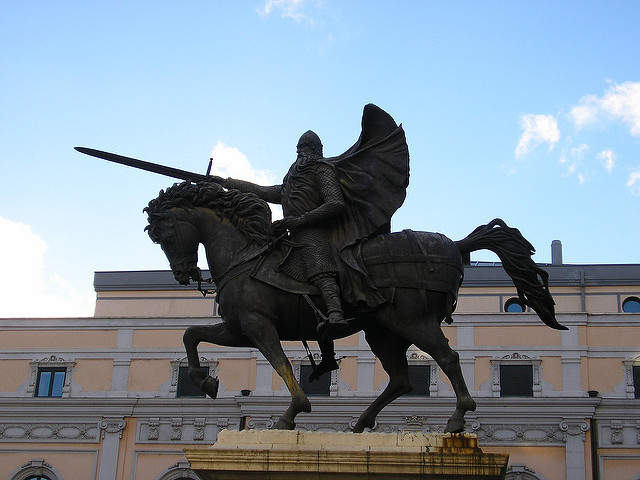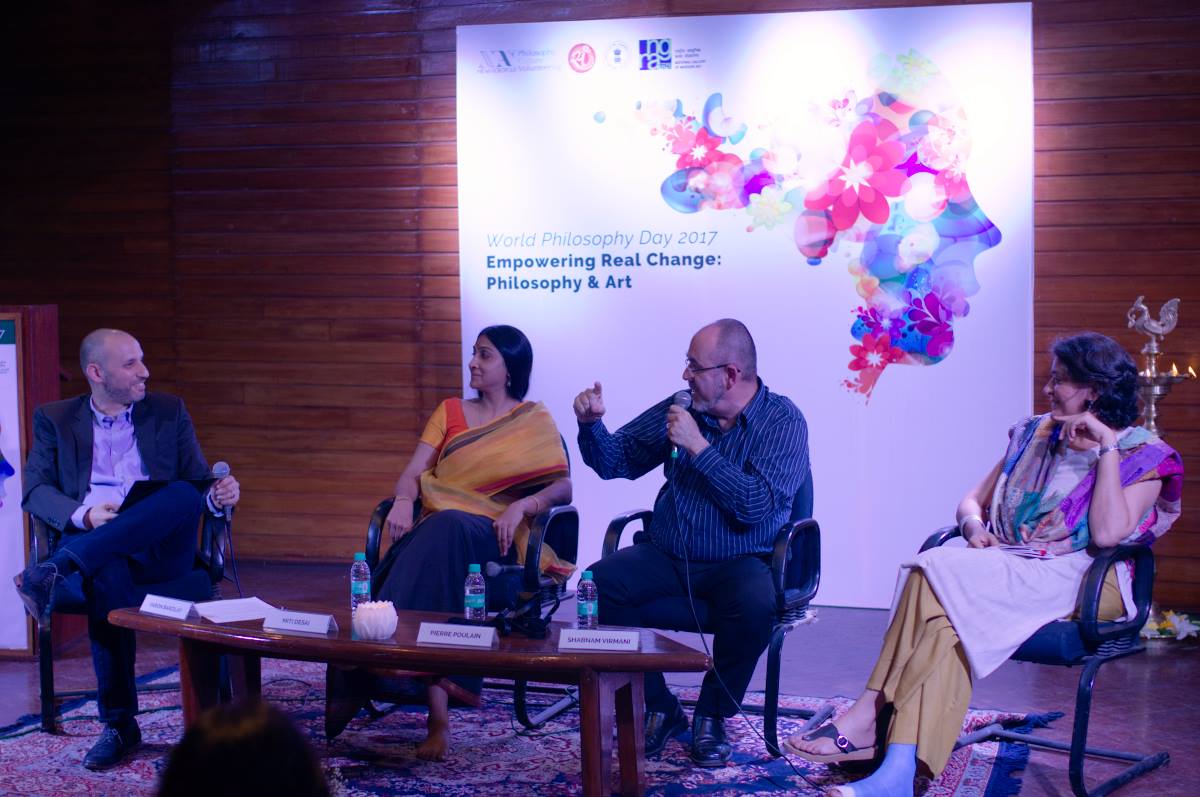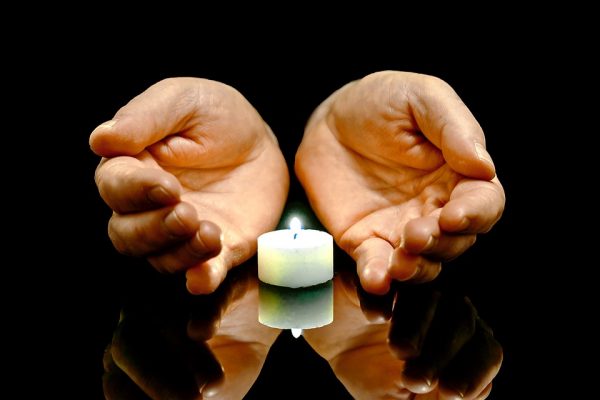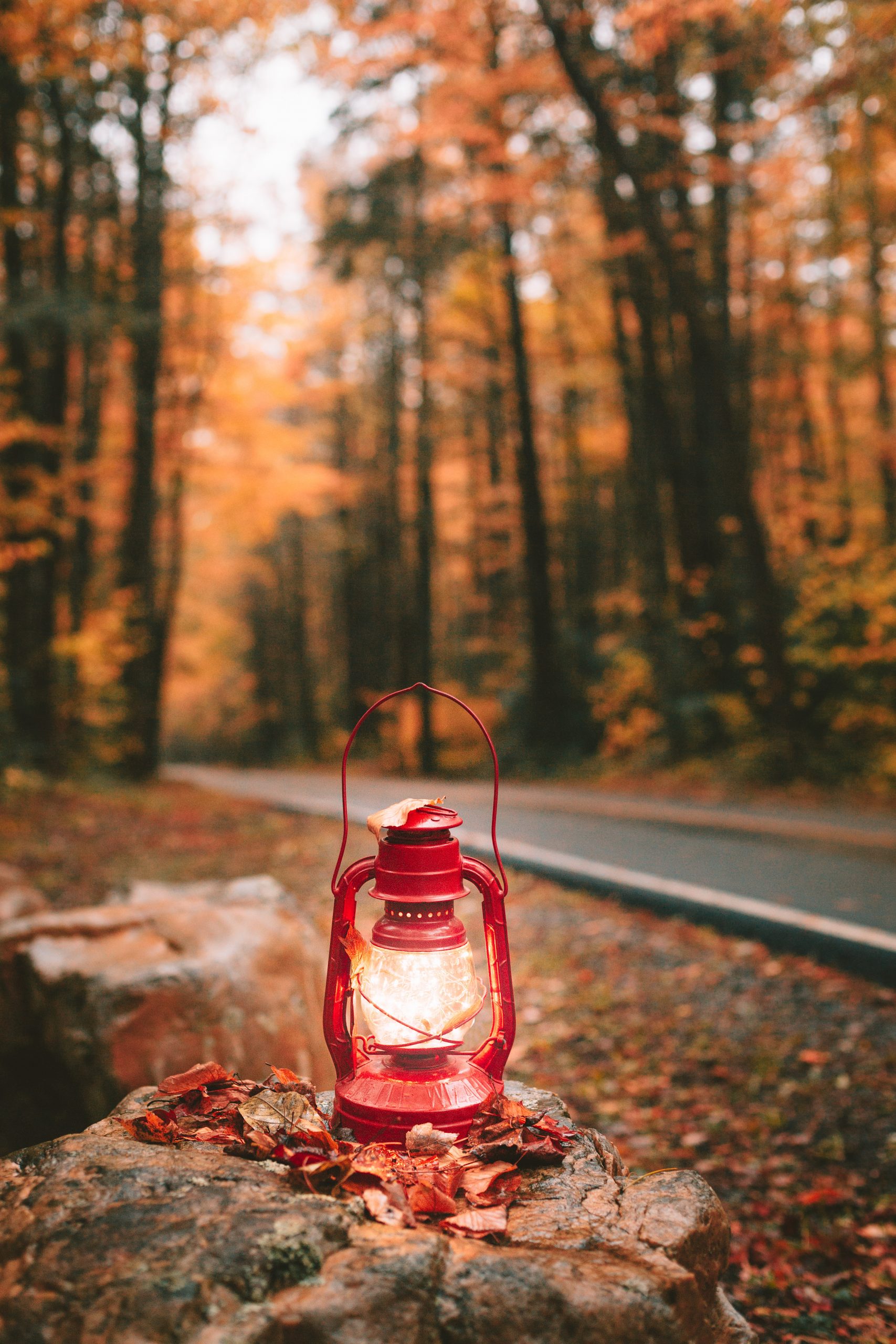The Barrenness of a Busy Life
Article By Tarini Vaidya
 Last week I tried to catch up with a few friends for dinner, three to be precise. Can you believe we could not find a date when we were all free to meet until almost a month later! My friends work and I’m the only one who doesn’t work. Guess who was the busiest? Yes, you guessed right – me!
Last week I tried to catch up with a few friends for dinner, three to be precise. Can you believe we could not find a date when we were all free to meet until almost a month later! My friends work and I’m the only one who doesn’t work. Guess who was the busiest? Yes, you guessed right – me!
So I began to ponder about what it was that kept me so busy, and about the whole concept of busyness in general. We fill our days with tasks, writing them down in digital reminders. We tick them off triumphantly as we complete them, only to periodically add to the list again! So we seem to be on a never ending wheel of chores and busyness.
In fact, “I’m so busy” seems to have become a mantra. We feel relevant when we have something to do. We feel important when we are busy and our personality rejoices in this importance. In our world today, a busy work and social life has become a measure of one’s success.
Several years ago when I voluntarily quit my job, colleagues and friends were aghast. “What will you do?” they asked, over and over. “Smell the roses!” I would respond delightedly, only to be met with eye rolls. We work our whole lives to be able to save enough money to do the things we really dream of doing – exotic travel, a penthouse apartment, fancy cars, philanthropy…. the list is almost endless. We say, “When I have enough money, I will do this and this…” But how many of us can define ‘enough’? Many years ago a friend said it was Rs 1 crore. Now he says it’s Rs 5 crore. And I’m sure his goal will change upwards once more!
So unsettled was I by my busyness, that I set out to explore the idea of nothingness. Shunyata. Have you ever de-cluttered your wardrobe? Given away clothes worn once, clothes you don’t fit into anymore and never will, something you bought on a whim but which you now regret buying. I’m sure you have and I’m sure you have also experienced that huge sense of relief when you did. It is almost cathartic and therapeutic. However, soon our closets are filled again…and the physical and mental space we have created is once again overflowing.
It is the same with all the tasks we fill into our lives, through which we look for external validation of our existence. We need other people to tell us that we are kind, or that we are beautiful. We need other people to make us feel relevant. But the mystics have said, since time immemorial, that all that we seek is already within us. Look deep into yourself, truthfully, and you will know when you have really been kind or when you have just been going through the motions. You do not need another person to tell you. We all wear masks, sometimes to fit in, sometimes to be who we think our partner, parent, or friend wants us to be. There’s nothing really wrong with that, as long as you know you are wearing a mask and that you are able to detach your real self from those personas you don from time to time. Just don’t become that persona. Why do you need someone else to love you? You can only become what you really are if you love yourself. Then you will realize what you are supposed to be – a reflection of Divinity. Then you will never let yourself down; in fact you will find yourself rising to become the Divine principle that flows through you. And you will know that you are complete, you are good, you are beautiful, without someone else having to validate it for you. This is something you will know for sure. Deep within. You will not have to be in constant motion, with a laundry list of ‘to dos’ to feel fulfilled. You will find the validation you seek within yourself, in your silences, in your stillness. Your validation comes from knowing who you are – not the home you live in, not the clothes you wear, not the job you do, not the many tasks you are so busy with, not the roles you play as a parent, spouse, child, or friend. And in this ‘nothingness’ you find your True Self, and that ‘nothing’ changes to everything.
Exploring further I embarked on a journey into nothingness, zero, shunyata, cessation.
In esoteric philosophy the number zero has great significance. According to esoterism, each number from 1 to 9 represents a force, an energy, a principle building block of life. The number zero, however, stands apart. It is abstract, without dimension. If the numbers 1 through 9 represent creation, the manifest world, rupa, then zero represents the un-manifest world, arupa, the invisible, eternal, and primordial dimension. It is the mystical source of creation. It represents Unity with the Divine. It is symbolic of the limitless boundary-less ocean from whence all creation emerges. Therefore zero, which in our modern world stands for nothing, was indeed everything for the ancients. So essential and sacred was its idea, that it was not used in mundane daily life, such as commerce. The number zero was represented by a single dimensionless point. It represented the center. It signified everything and nothing at the same time. The alpha and the omega. The source and the destination.
Esoterically, therefore, zero like our own true, divine nature. At the core, beneath all the sheaths we wear, our True Self is concealed, like a diamond in the rough, waiting to be mined. At our core we are simple and pure, devoid of accouterments and embellishments. We are nothing, yet we are everything. We are Zero, a single dimensionless point.
There is a story of a man who goes to a guru. “Teach me,” he says to the guru. The guru sends him away. Twice more the man returns to the guru with the same request and is met with the same response. The fourth time the guru gives him a cup full of water and asks him to add more water to it. “I can’t,” says the man, “It will overflow.” The guru responds, “That is the case with you. How can I fill any teaching in you when you are already full?” And so must we empty ourselves in order to connect with our true selves. We have to die to all that we are, or think we are, in order to be reborn to who we truly are; divine beings.
In Chapter 6 of the Bhagwad Gita, Krishna teaches Arjuna the art of meditation. He tells Arjuna to abandon all desires, even the desire for perfection, in meditation. We perceive the world through our senses, and it through our sensed that we experience the sensory world. So the senses are, in a way, the root of all our desires. Krishna says that the senses are controlled by the mind. We should not suppress our senses and our desires. Instead they should be controlled slowly, gradually, with patience and love, until desire falls away of its own accord. Then when the mind has attained some quietitude, the intellect should be used to subdue the mind, and the seeker should spend time in quiet contemplation upon the Self. Finally, one must let go of even this contemplation. The mind must cease all activity in order to realize Divine Bliss. There is total cessation. A void, shunyata, perhaps?
Meditation does not mean that we run off to a cave high in the Himalayas and sit in the lotus position with eyes closed! That can, at best, be a one off experience, forgotten when the regular noise of daily life intrudes. It is true that a daily practice of meditation brings focus to consciousness. However meditation is not just a ritual, limited to a certain length of time. Meditation is a state of mind, 24/7, even in our sleep. It is an awareness, a stillness of mind, a centeredness, even in the midst of rush hour traffic. As Eknath Easwaran puts it, “It is not during meditation that you make progress in meditation; it is during the rest of the day. What you do in meditation is get the power, install the dynamo; the actual work is done after you open your eyes, get up and go out into the world.” You have to carry that nothingness with you and let it permeate into your being. Understand what is real and permanent and what is just transient. Let meditation be a state, not an act.
Exploring further I came across the concept of shunyata in Mahayana Buddhism. It is described as the ‘great void’. In today’s parlance, the word ‘void’ implies something that contains absolutely nothing. However, the Buddhist tradition uses the term to describe a state free of rising and falling, utter calmness and cessation. This is often misinterpreted as a state of non-existence. On the contrary, according to Mahayana Buddhism, shunyata is a positive state, that does not obstruct other things. All form, all that is visible, is by nature obstructive. The great void does not serve as an obstruction to the manifest world, the rupa. In fact it serves as a means for matter to function. The void provides the space for the material world to go through its cycles of manifestation and disintegration, rising and falling. If the nature of the manifest world were not impermanent, then no new phenomena could arise, due to the co-existence of various causes. In the material world, eventually everything ceases to exist. Cessation is the original source, and the final destination of all existence.
Hindu creation myths speak of the concepts of manvantara and pralaya, cycles of creation and cessation, inhalation and exhalation. We believe we ‘are’ when we inhale. Yet our first and last moments in physical form are exhalations – a baby’s first cry and a person’s last breath. It is almost counter-intuitive for us to desire to cease. We attach so much importance to ourselves – our bodies, our minds and our intellect. We feel that our absence will create a void. Yet our True Self, the one concealed within all the layers, longs to return ‘home’, to complete cessation of its individual identity and a final merging with the Source.
Therein perhaps lies the source of the voice of the soul, the voice of silence. Amidst the cacophony of a busy life, we do not hear its call. We have to train our ears to listen to it. And once we hear its call, it will be like a crescendo! Nothingness is everything, busyness is nothing!
As if to hammer home the point, the Universe conspired to force me into house arrest for a week in the middle of August. I thought I’d go stir crazy. After all I had a long list of tasks that were impatiently awaiting completion. However I just stayed at home. I did not watch TV or read fiction. I sat in one place and gazed out of the window. I saw a tree swaying in the monsoon wind; I saw crows huddled against the pouring rain. I found spiritual context in it all. My mind was at ease, focused on nothing. I breathed in the emptiness and I exhaled it. Slowing down was blissful. I connected with a place deep within myself, that I am usually too busy to even realize exists. There is a tongue in cheek Spanish saying, “How beautiful it is to do nothing and then rest afterwards!” And the Italians have a lovely phrase “Dolce far niente,” which loosely translates to “the sweetness of doing nothing.” Try it. You will find doing nothing is actually very fulfilling. It is, in fact, doing everything! In being nothing, you will blossom into being something special; your True Self.
Image Credits: By Glenn Carstens-Peters | unsplash | CC BY PD
The entity posting this article assumes the responsibility that images used in this article have the requisite permissionsImage References
By Glenn Carstens-Peters | unsplash | CC BY PD
Permissions required for the publishing of this article have been obtained




Simply loved your piece, Tarini.
We believe we ‘are’ when we inhale. Yet our first and last moments in physical form are exhalations – a baby’s first cry and a person’s last breath. It is almost counter-intuitive for us to desire to cease. We attach so much importance to ourselves – our bodies, our minds and our intellect. We feel that our absence will create a void. Yet our True Self, the one concealed within all the layers, longs to return ‘home’, to complete cessation of its individual identity and a final merging with the Source….
And..
There is a tongue in cheek Spanish saying, “How beautiful it is to do nothing and then rest afterwards!” And the Italians have a lovely phrase “Dolce far niente,” which loosely translates to “the sweetness of doing nothing.” Try it. You will find doing nothing is actually very fulfilling. It is, in fact, doing everything! In being nothing, you will blossom into being something special; your True Self.